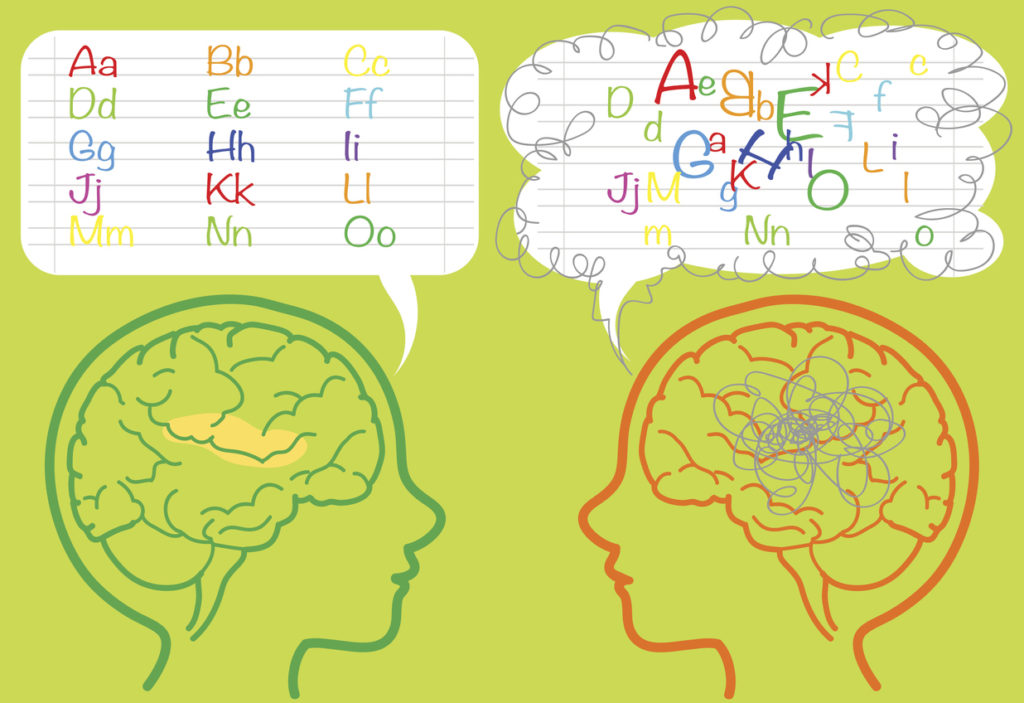Every parent wants their kids to do well at school, study and get good grades. However, school life can be very difficult and complicated for those with dyslexia as this disorder can affect a person’s intelligence as well as their everyday life. And, the brutal truth is that sometimes the education system is so narrow that it cannot understand, support and help dyslexic children.
Today, I’m going to share some of the most common traits of dyslexia so that parents can detect these symptoms very quickly and easily and to protect their children from academic taunts.
Symptoms of Dyslexia in General:

- The closest thing I know to a brutal truth about someone being dyslexic is that the person may have a very high IQ, but cannot do well academically.
- Someone who appears to be very bright, highly intelligent and smart but is actually unable to write, spell or read (at grade level).
- Dyslexic people are often those who are labeled by the society as lazy, dumb, daydreamers, useless, good-for-nothing, childish, immature, and careless or someone who doesn’t try hard enough.
- You might be very good at oral tests, but you don’t do well at written examinations.
- A person who is often said that he/she is not “bad or behind enough” to be helped academically.
- If you get easily and quickly frustrated or stressed about school matters; you get emotional when it comes to school reading or exams.
- Dyslexic people are often those who have a low self-esteem/self-confidence or feel dumb; they always try to hide their flaws and weaknesses with compensatory techniques.
- You can easily lose track of time; you tend to “zone out” or daydream.
- You are often confused with directions and get lost easily.
- You are very talented in areas like drama, art, music, sports, story-telling, sales, business, design, engineering, mechanics and building.
- You can learn faster through demonstrations, hands-on experience, observation, experimentation and through the use of visual aids; you are more comfortable with such types of communication also.
Symptoms of Dyslexia Through Reading, Vision, and Spelling:

- When it’s reading time, you always feel dizzy or suffer from headaches and stomach aches – and I know how much difficult it can be for dyslexic children as teachers and parents often view these symptoms as excuses for not reading and studying.
- You are often confused by words, numbers, letters, sequences, symbols and verbal explanations.
- When you are reading or studying, you find the letters or words to be dancing or moving sideways, up and down and sometimes all at once. It feels like a cartoon (or a Busby Berkeley movie). Sometimes, you’ll find the letters and words to be dancing, jumping or moving in a pattern or sometimes chaotically.
- When it comes to numbers, uh oh, they are the worst. Decimal points would always trick you as they always seem to move around the numbers. You might be indifferent to $300.71 and $30.71.
- Teachers might often complain about repetitions, transpositions, unnecessary additions, omissions or substitutions in your writing or even reading.
- You have to read a sentence several times to understand what it actually means. Or, you have to read a few words quickly, pause and then continue reading to better understand what is being said.
- You can be very slow at writing. For example, it may feel as if your brain works faster than your hands as you may know what to write but your hands don’t move fast enough.
- You may often make silly misspellings.
- Even if, for example, English is your native language, it may seem foreign to you when you are reading it.
- You seem to have a difficulty with your vision, but eye tests may not reveal any problems (that’s very common).
- You may be very keen sighted or an observant, but you somehow lacks the peripheral vision.
Signs of Dyslexia Through Mathematics and Time:

- Reading clocks and calendars affects you. You often tell the wrong time. For instance, if it’s 3:20, you’d say it’s 2:30. And, clocks with Roman numerals may appear as mere pictures to you.
- You are not good at timetables. You may know 2s, 3s, 5s and 10s but that’s all.
- You can be good at arithmetic, but you always seem to fail at word problems.
- You can count on fingers but you can’t do it on paper; you can’t also count objects or money.


